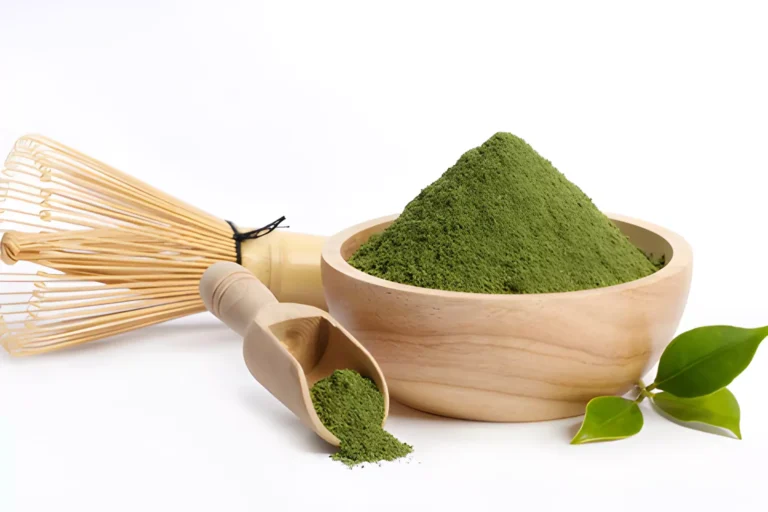Does Ashwagandha Make You Sleepy? The Truth Revealed
Are you struggling to get a good night’s sleep? Do you often find yourself tossing and turning, unable to drift off into a peaceful slumber? If so, you’re not alone. Sleep troubles affect millions of people worldwide. Fortunately, nature has provided us with various remedies to help improve our sleep quality, and one such remedy is ashwagandha.
Ashwagandha is a popular herb used for centuries in Ayurvedic medicine for its many health benefits, such as reducing stress, boosting immunity, enhancing memory, and improving mood. But does ashwagandha make you sleepy?
In this article, I will cover ashwagandha and its potential health benefits for better sleep. I will also tell you the correct dosage and when you should take it for the most effectiveness. So let’s get started.
What Is Ashwagandha?
Ashwagandha, often referred to as “Indian Ginseng” or “Winter Cherry,” is a small evergreen shrub native to India and North Africa. It’s a prominent herb in Ayurvedic medicine, where it’s cherished for its adaptogenic properties. Adaptogens are substances believed to help the body adapt to stress and maintain balance. It has been shown to reduce stress, anxiety, and depression.
What Are the Health Benefits of Ashwagandha?
Ashwagandha has been shown a range of potential health benefits. Traditionally, it has been used to enhance vitality, increase energy levels, and reduce stress. Modern research suggests it may also have anti-inflammatory and antioxidant properties. But one of the most intriguing aspects of Ashwagandha is its potential to help with sleep. Apart from these, here are some notable health benefits of taking ashwagandha.
- Reducing stress and anxiety: Ashwagandha can lower cortisol levels, the hormone released under stress. Cortisol can cause various problems, such as weight gain, high blood pressure, diabetes, and insomnia.
- Boosting immunity: Ashwagandha can enhance the function of the immune system by increasing the production of white blood cells, natural killer cells, and antibodies.
- Enhancing memory and cognition: Ashwagandha can improve brain function by increasing the levels of acetylcholine. This neurotransmitter is essential for learning and memory.
- Improving sexual health: Ashwagandha can improve sexual health by increasing testosterone levels in men and estrogen levels in women.
Can Ashwagandha Improve Sleep Quality?
One of the most common questions about ashwagandha is whether it can improve sleep quality. The answer is yes. Ashwagandha can help you sleep better in several ways.
Studies have found that ashwagandha reduced sleep onset latency and improved sleep efficiency in people with insomnia. Another study, published in 2020, found that ashwagandha improved sleep quality in older adults with insomnia. Here is how it works.
First, it will help you fall asleep faster by reducing stress and anxiety. As mentioned earlier, stress and anxiety can interfere with sleep by increasing cortisol levels and activating the HPA axis. This can make it hard to relax and fall asleep at night. Ashwagandha can lower cortisol levels and calm the HPA axis activity, which can help you unwind and drift off to sleep more easily.
Secondly, it can help you stay asleep longer by improving your sleep cycles. Sleep cycles are the stages of sleep we go through every night, from light to deep sleep to REM sleep. Each stage has its benefits for our health and well-being. For example,
- Light sleep helps us transition from wakefulness to sleepiness.
- Deep sleep helps us restore our physical energy.
- REM sleep helps us consolidate our memories and emotions
Thirdly, it helps you wake up feeling refreshed and energized by improving your overall health. By reducing stress, boosting immunity, enhancing memory, and improving sexual health, ashwagandha can help us feel more positive, productive, and happy daily. This can also translate to better sleep quality, as we are more likely to sleep well when we are healthy and satisfied.
The Science Behind Ashwagandha’s Impact on Sleep
The link between Ashwagandha and sleep improvement is not a new concept. Recent scientific studies have delved into this connection, shedding light on how Ashwagandha may promote better sleep.
Regulating Cortisol Levels: Ashwagandha is believed to help regulate cortisol, a hormone associated with stress. High cortisol levels can disrupt sleep patterns, making it difficult to fall asleep or stay asleep throughout the night. By managing cortisol, Ashwagandha may create a more conducive environment for a peaceful slumber.
Neurotransmitter Interaction: Ashwagandha may interact with neurotransmitters such as serotonin and dopamine, which play a vital role in regulating mood and sleep. Balancing these neurotransmitters could contribute to a sense of relaxation and improved sleep.
Increased GABA Activity: GABA (Gamma-Aminobutyric Acid) is an inhibitory neurotransmitter that promotes relaxation. Some studies suggest that Ashwagandha may enhance GABA receptor activity, potentially aiding in sleep onset and quality.
Ashwagandha vs. Melatonin: Which Should I Choose?
Melatonin is another popular supplement that is used to improve sleep disorder. Melatonin supplements are often used by people who have trouble falling asleep or staying asleep due to jet lag, shift work, or other factors that disrupt their natural sleep. It can help them adjust their circadian rhythm to match their desired sleeping schedule.
However, melatonin supplements have drawbacks. Some potential side effects of melatonin include headache, drowsiness, dizziness, nausea, and many more.
Moreover, melatonin supplements may not be effective for everyone or every type of sleep problem. On the other hand, ashwagandha offers a more holistic and natural approach to improving quality of sleep. Ashwagandha addresses the root causes of poor sleep, such as stress, inflammation, and hormonal imbalance.
Ashwagandha can also enhance the quality and quantity of all stages of sleep, from light sleep to deep sleep to REM sleep. It can also help you wake up feeling refreshed and energized without causing any grogginess or hangover.
How and When to Use Ashwagandha For Sleep
If you’re considering using Ashwagandha to enhance your sleep, it’s crucial to know how and when to take it. Ashwagandha supplements are available in various forms, including capsules, powders, and tinctures. It’s generally recommended to take Ashwagandha 3-6 times a day, depending on the specific product and your needs.
To maximize its potential sleep benefits, you might consider taking it in the evening, preferably before bedtime. However, it’s essential to follow the dosage instructions on the product label and consult with a healthcare professional if you have any concerns.
Tips to Adding Ashwagandha to Your Health Routine
When incorporating Ashwagandha into your daily routine, consider the following tips:
- Start with a lower dose: Begin with a lower dose and gradually increase it as needed, under the guidance of a healthcare provider.
- Monitor your response: Pay attention to how Ashwagandha affects your sleep and overall well-being. Keep a sleep journal to track improvements.
- Combine with other sleep-promoting practices: Ashwagandha can complement other healthy sleep habits, such as maintaining a consistent sleep schedule, creating a relaxing bedtime routine, and optimizing your sleep environment.
What Are the Possible Side Effects of Ashwagandha?
Ashwagandha is generally known for its safety, but like any supplement, it may have side effects in some individuals. Common side effects may include gastrointestinal discomfort or allergic reactions. Additionally, if you have a pre-existing medical condition or are taking medications, it’s advisable to consult with a healthcare professional before using Ashwagandha as a sleep aid.
Conclusion
Ashwagandha is a popular herb with a rich history of traditional use, and it has been found to offer numerous health benefits. While it may not immediately make you sleepy like a sedative, studies suggest that Ashwagandha can help reduce stress, promote relaxation, and improve sleep quality. The efficacy and safety of Ashwagandha for sleep can vary from person to person, so it’s essential to monitor your response and consult with a healthcare professional if you have concerns.
In your quest for a good night’s sleep, Ashwagandha could be a valuable addition to your arsenal of natural sleep aids. However, remember that sleep quality is influenced by a multitude of factors, and achieving the desired sleep benefits may require a holistic approach that goes beyond supplements.




